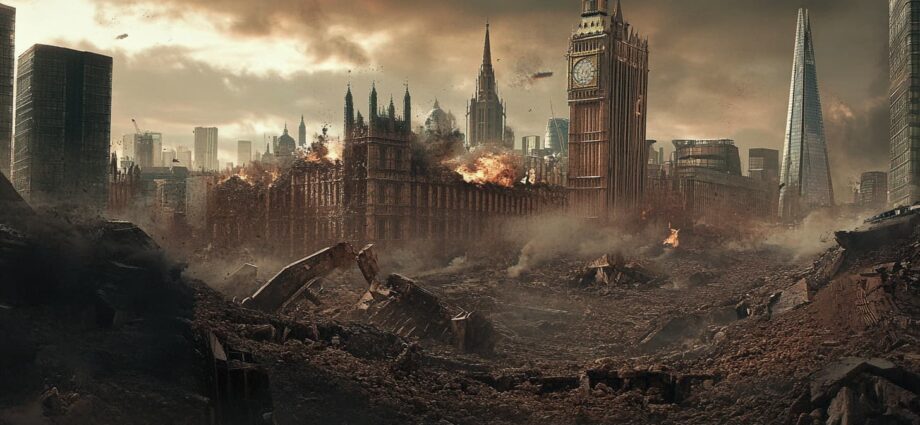In the shadow of Brexit, rising authoritarianism, climate crisis, and global inequality, British literature has undergone a distinct transformation. One of the most potent arenas for this change is speculative fiction—particularly in the forms of utopia and dystopia. For a new generation of British writers, these genres are more than escapism. They are political lenses, ethical battlegrounds, and platforms to interrogate the present through imagined futures.
In this article, we explore how modern British authors are reshaping speculative fiction to reflect societal anxieties, explore progressive possibilities, and reimagine power structures. From Naomi Alderman’s power-shifting dystopias to Temi Oh’s Afrofuturist visions, this is fiction that doesn’t just speculate—it agitates.
A Legacy of Political Imagination
Speculative fiction has always been inherently political. Utopian literature—from Thomas More’s Utopia (1516) to William Morris’s News from Nowhere (1890)—offered blueprints for ideal societies or, more often, critiques of the author’s own time. Conversely, dystopias such as George Orwell’s 1984 or Aldous Huxley’s Brave New World warned of futures shaped by surveillance, state control, and dehumanization.
This tradition remains alive in the 21st century, but the themes and tones have shifted. Today’s British speculative fiction is less concerned with absolute visions of perfection or catastrophe and more invested in ambiguity, complexity, and critique. It reflects the messy nature of the world we inhabit—and the uncertain trajectory ahead.
Naomi Alderman and the Reversal of Power
Perhaps the most internationally recognized example of contemporary British dystopian fiction is Naomi Alderman’s The Power (2016). In this speculative narrative, women around the world develop the ability to emit electric shocks—flipping centuries of gender-based oppression on its head. What begins as feminist revenge fantasy evolves into a chilling portrayal of how power corrupts, regardless of who wields it.
Alderman’s work is both empowering and cautionary. Rather than offering a neat utopia, it demonstrates that structural power, when left unchecked, reproduces the same cycles of violence. The novel invites reflection on patriarchy, gender essentialism, and systemic abuse—all within a high-concept speculative frame.
Temi Oh and the Afrofuturist Turn
Another distinctive voice is Temi Oh, whose 2019 debut Do You Dream of Terra-Two? blends science fiction with introspective psychological drama. Following a group of young astronauts on a decades-long journey to colonize a new planet, the novel explores themes of race, isolation, belonging, and institutional control.
Oh’s work is particularly significant in broadening the scope of speculative fiction in Britain. Drawing from Afrofuturist influences, she challenges the often Eurocentric frameworks of science fiction and foregrounds questions of identity and inclusion. Her characters grapple not just with outer space, but with inner contradictions.
Her writing signals a new political horizon in British SF—one shaped by diaspora, decolonization, and the psychological toll of ambition and displacement.
Dystopia, Climate, and the Eco-Crisis
Many new British writers have turned to dystopia to grapple with environmental collapse. Cli-fi (climate fiction) has grown rapidly as a subgenre, blending ecological warnings with narrative experimentation.
James Bradley’s Clade and Sarah Hall’s The Carhullan Army are earlier examples, but more recently, writers like Luan Goldie and Natasha Carthew have tackled ecological injustice and class struggle through near-future settings. These works don’t depict environmental disaster as distant or abstract; they embed it in everyday life, showing how climate change deepens social divides and disrupts communities from the inside out.
These are not sweeping end-of-the-world epics, but slow apocalypses—stories of erosion, abandonment, and radical resistance.
Intersectionality in Speculative Space
A striking feature of this new wave is its intersectional awareness. Modern speculative fiction rarely isolates one axis of identity or power. Instead, it explores how race, gender, sexuality, class, and disability intersect in the construction of utopian or dystopian worlds.
For instance, Rivers Solomon—though based in the US—has been published and championed in the UK and represents this intersectional turn. Their novel An Unkindness of Ghosts uses the metaphor of a segregated spaceship to critique racial capitalism, gender norms, and historical amnesia.
British-based authors are increasingly adopting similar frameworks, questioning whose bodies and voices are erased in traditional visions of the future.
Utopia Reimagined: Hope in the Age of Collapse
In the face of so much dystopia, some writers are reclaiming utopia—not as a perfect, static society, but as a radical act of imagination.
Becky Chambers, while American, has found a significant readership in the UK and has influenced British SF with her “hopepunk” narratives. British authors like Irenosen Okojie and Lavie Tidhar have also infused their speculative fiction with surrealism, poetry, and alternative social visions that prioritize cooperation, creativity, and healing.
These are not glossy, corporate futures. They are strange, messy, and deeply human. They ask: What if care, not control, shaped society? What if we wrote stories to sustain rather than dominate?
Publishing and Platforms: Independent Futures
This new wave of speculative fiction often emerges from small presses, zines, and hybrid platforms. Publishers like Comma Press and Peirene Press are known for fostering bold, genre-blending work that mainstream publishers may overlook.
Festivals like FutureFest and initiatives like the Orwell Youth Prize are also encouraging younger writers to explore speculative futures with political depth. This decentralization of platforms has allowed more marginalized voices to imagine and critique power.
Conclusion: Fiction as Forecast, Fiction as Fight
Speculative fiction has always carried a dual purpose: to warn and to wonder. In the hands of Britain’s new wave of writers, it becomes a mirror and a map—reflecting the fractures of today and tracing possible routes toward tomorrow.
Whether through dystopias of algorithmic governance, utopias of mutual aid, or genre-defying allegories of resistance, these authors are asserting that fiction is not a luxury. It is a necessity. In an age when the real world feels increasingly surreal, speculative fiction grounds us—not in fantasy, but in a deeper understanding of what’s at stake.
In reimagining the future, these writers reclaim the present. And in the space between the possible and the impossible, they are building not just worlds, but weapons—against silence, against despair, and for change.

Comments are closed, but trackbacks and pingbacks are open.